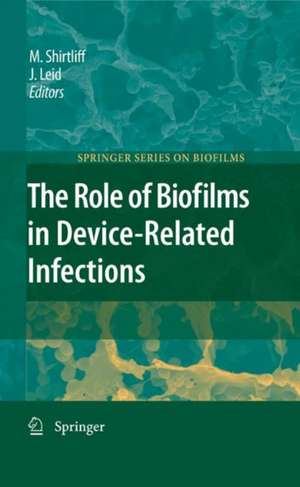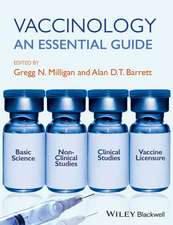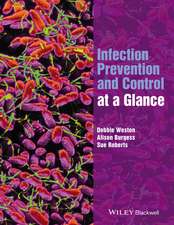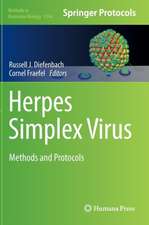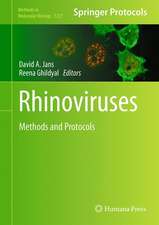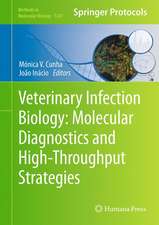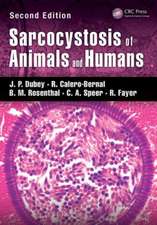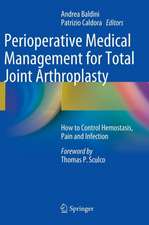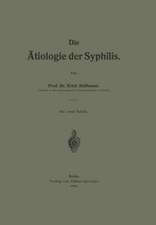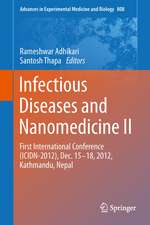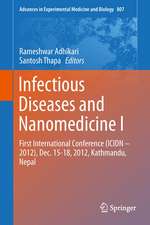The Role of Biofilms in Device-Related Infections: Springer Series on Biofilms, cartea 3
Editat de Mark Shirtliff, Jeff G. Leiden Limba Engleză Hardback – 9 ian 2009
| Toate formatele și edițiile | Preț | Express |
|---|---|---|
| Paperback (1) | 1093.52 lei 6-8 săpt. | |
| Springer Berlin, Heidelberg – 30 noi 2010 | 1093.52 lei 6-8 săpt. | |
| Hardback (1) | 1103.03 lei 6-8 săpt. | |
| Springer Berlin, Heidelberg – 9 ian 2009 | 1103.03 lei 6-8 săpt. |
Preț: 1103.03 lei
Preț vechi: 1161.08 lei
-5% Nou
Puncte Express: 1655
Preț estimativ în valută:
211.13€ • 229.41$ • 177.47£
211.13€ • 229.41$ • 177.47£
Carte tipărită la comandă
Livrare economică 21 aprilie-05 mai
Preluare comenzi: 021 569.72.76
Specificații
ISBN-13: 9783540681137
ISBN-10: 3540681132
Pagini: 284
Ilustrații: XII, 272 p. 31 illus., 17 illus. in color.
Dimensiuni: 155 x 235 x 20 mm
Greutate: 0.64 kg
Ediția:2009
Editura: Springer Berlin, Heidelberg
Colecția Springer
Seria Springer Series on Biofilms
Locul publicării:Berlin, Heidelberg, Germany
ISBN-10: 3540681132
Pagini: 284
Ilustrații: XII, 272 p. 31 illus., 17 illus. in color.
Dimensiuni: 155 x 235 x 20 mm
Greutate: 0.64 kg
Ediția:2009
Editura: Springer Berlin, Heidelberg
Colecția Springer
Seria Springer Series on Biofilms
Locul publicării:Berlin, Heidelberg, Germany
Public țintă
Professional/practitionerCuprins
Microbial Ecology of Human Skin and Wounds.- Infections of Orthopaedic Implants and Devices.- Biofilms and Aseptic Loosening.- Biofilms and Ventilation.- Biofilm Formation on Natural Teeth and Dental Implants: What is the Difference?.- Complicated Urinary Tract Infections due to Catheters.- Biofilms in Hemodialysis.- Bacterial Endophthalmitis Following Cataract Surgery.- Use of Immunodiagnostics for the Early Detection of Biofilm Infections.- Immune Responses to Indwelling Medical Devices.
Textul de pe ultima copertă
Approximately 60% of all hospital-associated infections, over one million cases per year, are due to biofilms that have formed on indwelling medical devices. Device-related biofilm infections increase hospital stays and add over one billion dollars/year to U.S. hospitalization costs. Since the use and the types of indwelling medical devices commonly used in modern healthcare are continuously expanding, especially with an aging population, the incidence of biofilm infections will also continue to rise. The central problem with microbial biofilm infections of foreign bodies is their propensity to resist clearance by the host immune system and all antimicrobial agents tested to date. In fact, compared to their free floating, planktonic counterparts, microbes within a biofilm are 50 – 500 times more resistant to antimicrobial agents. Therefore, achieving therapeutic and non-lethal dosing regimens within the human host is impossible. The end result is a conversion from an acute infection to one that is persistent, chronic, and recurrent, most often requiring device removal in order to eliminate the infection. This text will describe the major types of device-related infections, and will explain the host, pathogen, and the unique properties of their interactions in order to gain a better understanding of these recalcitrant infections.
Caracteristici
Provides the reader with the science and microbiology behind one of the burgeoning increases in infectious disease, indwelling medical device infections
